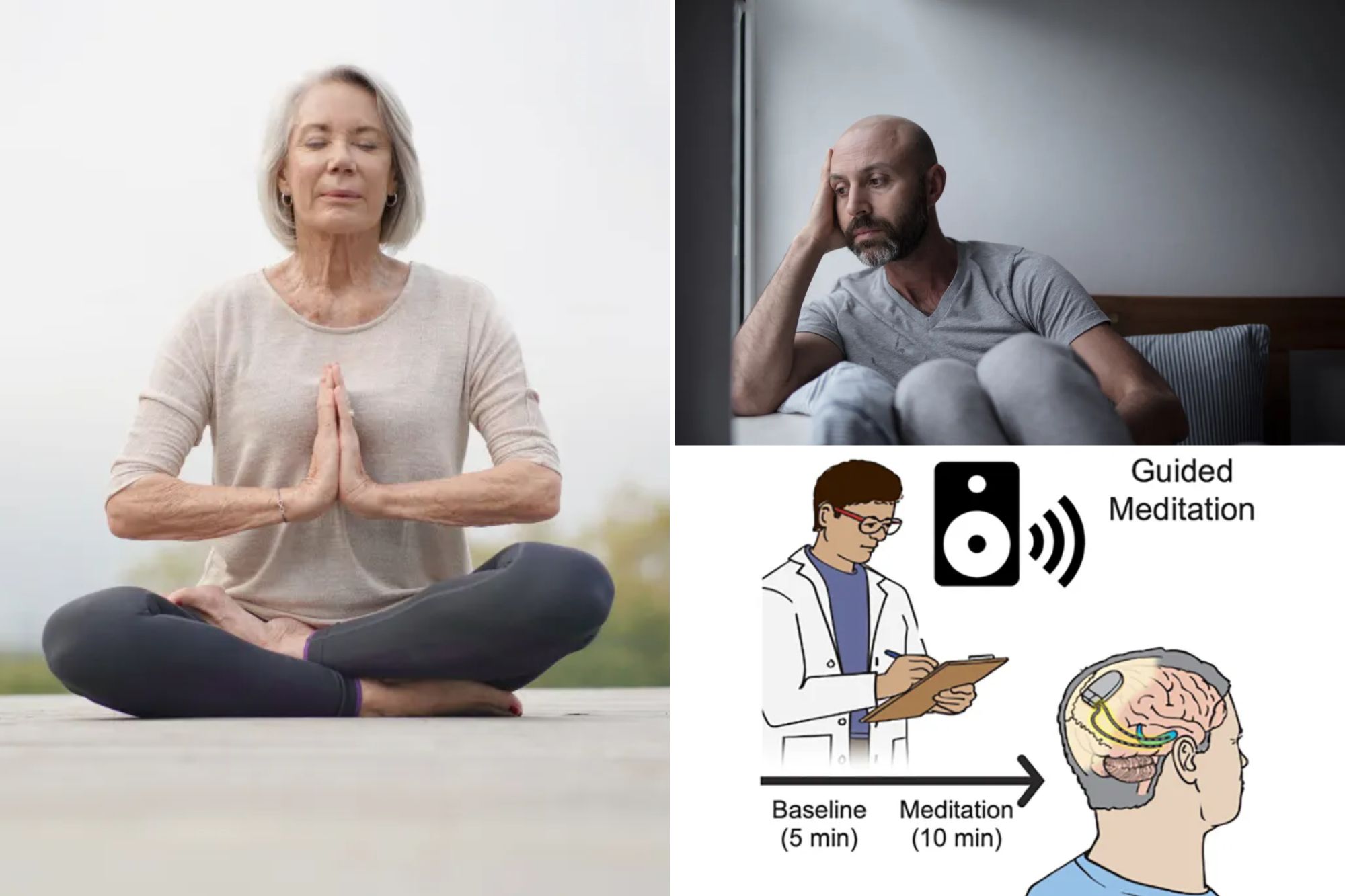
Here is another reason to hit the “pause” button and find your voice.
A new study found that meditation affects the main regions of your brain responsible for emotional regulation and memory, offering new knowledge of why it works so well in relaxing the mind.
Researchers at the ICAHN Medical School in Mount Sinai say their findings can help form meditation based on psychiatric conditions such as anxiety and depression, which affect nearly a third of American adults.
Meditation has a rich and ancient history, with its earliest roots tracing back to India Vedic, where it was a cornerstone in Ayurveda medicine. Over time, it became a cornerstone of various religious and spiritual practices throughout the East.
Quick forward to today, and “meditation” now serves as an umbrella term for a series of techniques of the mind that have taken the West from the storm in the last decades.
In the US, the number of adults practicing meditation more than doubled from 7.5% in 2012 to 17.3% in 2022.
Meditation and other practices of the mind have been linked to a list of health benefits laundry, lowering blood pressure and improving sleep quality until the immune system is raised and even to help digestion.
Also shown to help manage the symptoms of anxiety, depression and stress. While past studies have highlighted the benefits of meditation’s mental health, the exact science of the brain behind it has remained unclear – so far.
“Traditionally, it has been challenging to study these deep limbic regions of the brain in humans using standard methods like head head [electroencephalogram]”Said Christina Maher, a student of the neuroscience doctorate and the first author of the paper in a statement.
Maher and her team overcome this by working with eight patients suffering from medication -resistant epilepsy, who already had deeply implanted electrodes in their amygdala and hypocampus, allowing for continuous monitoring of their brain activity.
Participants, who were new meditators, participated in a “lovers of love with love”. Practice, which involves focusing on the thoughts of well -being of yourself and others, produced changes in the strength and duration of beta and gamma brain waves.
“These types of brain waves are affected in mood disorders such as depression and anxiety, so the ability to be able to deliberately control these through meditation is quite amazing, and can help explain the positive impact these Practices have in individuals, ”said Dr. Ignacio Saez, associate professor of neuroscience, neurosurgery and neurology at the Icahn Medical School and senior author of the paper.
While the findings are promising, the study has its limitations. The sample size was small, and the researchers only evaluated the effects of meditation once, without examining the impact of repeated practice or long -term benefits.
However, the study lays the basics for future research, which can open the door of therapeutic applications for people who fight with anxiety and depression.
“Meditation is non-attractive, widely accessible and does not require specialized equipment or medical resources, making it an easy tool to use to improve mental well-being,” Saez said, though he noted that meditation should not be replace traditional therapy.
Instead, he said, “It can serve as a low -cost supplementary opportunity for individuals who experience challenges with memory or emotional regulation.”
The Mount Sinai team is planning to conduct subsequent studies that will be deprived of deeper into the relationship between brain activity and mental health results. Their next step is to collect more data on the long -term impact of meditation.
#Meditation #brain #waves #anxiety #depression
Image Source : nypost.com